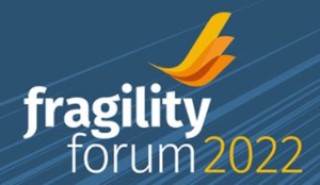Development and peace in uncertain times
07 March 2022

New UK aid funded research will be presented at the World Bank Fragility Forum this week
State fragility and conflict continue to pose major security, humanitarian, and economic challenges to the 1.8 billion people – almost a quarter of the world’s population – living in fragile states. Over the past two years, the nature of that challenge, and the context for supporting transitions out of fragility, has changed dramatically.
From the effects of climate change to the unprecedented socioeconomic crisis created by the Covid-19 pandemic, as well as increasing political tensions and violence, these compounding challenges hit especially hard those populations that were already dealing with structural fragility and violent conflict.
Every two years, the World Bank’s Fragility Forum provides an opportunity for policy makers, development and humanitarian practitioners, the private sector, and researchers to reflect on the challenges of state fragility, exchange ideas and insights, and work to improve the approaches to fostering peace and stability in fragile and conflict-affected environments.
At this year’s forum, research by a team of from the University of Reading and ODI will highlight insights into how local actors and the international community can support transitions from what are often narrow political bargains between former conflict parties at the end of a war, that fail to promote both more inclusive politics and economic development, towards more open and inclusive politics.
Professor Dominik Zaum, Pro-Vice-Chancellor for Research at the University of Reading and one of the report authors, said: “The research highlights the importance of developing and strengthening local institutions to leverage change, and to entrench it.
“Transitions from narrow elite bargains are normally gradual and at the margins. They happen because of the pressure for change from local actors, not least businesses. As they accumulate can make significant differences to the nature of political and economic life, but it is important that these changes are sticky, and institutions are key to this.”
For the World Bank Fragility Forum, the team produced a short podcast discussing some of the key issues in transitions towards more open and inclusive politics, and how they have informed policy and strategy on conflict in the Foreign, Commonwealth, and Development Office (FCDO) (requires free registration for the Fragility Forum).
From Elite Bargains to (More) Open and (More) Inclusive Politics by Corinne Heaven, Alina Rocha Menocal, Sarah von Billerbeck and Dominik Zaum, Report for the UK Foreign, Commonwealth and Development Office, February 2022.
Further information about the World Bank Fragility Forum, 7 to 15 March 2022

